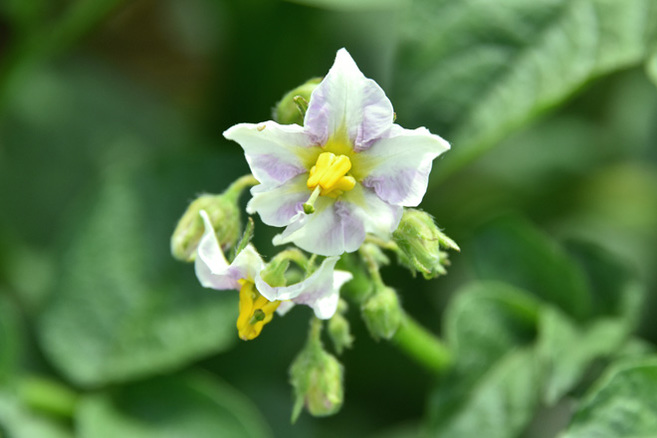|
Carl Ransom Rogers is something of a heroic figure in the counselling world. His impact on the practice of counselling is as big as Freud's discovery of the unconscious, which at the time was a radical idea.
The 'Core Conditions', described in Rogers' Person-Centred Therapy are replicated across all counselling modes in one form or another, and even into allied fields such as social care. His writing however stands in stark contrast to his fundamental belief that anyone could offer a person centred approach. His many books contain at times terrifyingly complex theory, such as his '19 Propositions' where each proposition relied on the ones preceding it, and can only be understood as a whole. It is within the '19 Propositions' that Rogers explains how therapy works. Mixed in with his heavy theoretical writing, Rogers also wrote pieces which had a power to move others. The 'potato story' is one such piece. I was just starting out as a counselling student, when my tutor read it out to us. For a story about potatoes it was, and still is strangely moving. It is for me one of the most vivid descriptions of the somewhat mysterious actualising tendency, and the process of self-actualisation, which is central to the person-centred approach. And here is that story in Rogers own words, I remember that in my boyhood, the bin in which we stored our winter’s supply of potatoes was in the basement, several feet below a small window. The conditions were unfavourable, but the potatoes would begin to sprout — pale, white sprouts, so unlike the healthy green shoots they sent up when planted in the soil in the spring. But these sad, spindly sprouts would grow 2 or 3 feet in length as they reached toward the distant light of the window. The sprouts were, in their bizarre, futile growth, a sort of desperate expression of the directional tendency I have been describing. They would never become plants, never mature, never fulfil their real potential. But under the most adverse circumstances, they were striving to become. Life would not give up, even if it could not flourish. In dealing with clients whose lives have been terribly warped, in working with men and women on the back wards of state hospitals, I often think of those potato sprouts. So unfavourable have been the conditions in which these people have developed that their lives often seem abnormal, twisted, scarcely human. Yet, the directional tendency in them can be trusted. The clue to understanding their behaviour is that they are striving, in the only ways that they perceive as available to them, to move toward growth, toward becoming. To healthy persons, the results may seem bizarre and futile, but they are life’s desperate attempt to become itself. Source Carl Rogers (1980) A way of being In just 244 words Rogers reaches into the heart of what humanism is all about – the ability to peer through the grime, the outer labels and see the potential for growth that lies within all of us. I think this story also holds a powerful message about our own struggles, when our critical voices are telling us we should have tried harder, and begin chorusing “if only...” Wherever we are, wherever we find ourselves, this is just us doing the best we can with what we have, trying to get where we need to go.
potato flower image by yibg
Are you a counselling student looking for personal therapy?
I am an experienced counsellor in private practice in the Southampton area of England, UK. I specialise in offering personal therapy to counselling students as part of their course requirement.
Related articles...
4 Comments
Katarina
27/6/2020 04:12:50 pm
I too love the potato story! Thank you for sharing.
Reply
Mark Redwood
27/6/2020 04:21:46 pm
still my fav Rogers story :)
Reply
Anna
11/4/2024 12:39:12 pm
hey mark what page in the book is this quote on?
Reply
Mark Redwood
11/4/2024 02:18:11 pm
Hi Anna, unfortunately I can't remember. It might turn up on a google search if you don't have the book.
Reply
Leave a Reply. |
Categories
All
Archives
January 2021
|
BioI'm Mark, a Humanistic Counsellor. |
Home - Testimonials - Articles - Links - Contact - Book Appointment - Counselling Students - Privacy Policy - Terms
Mark Redwood, BA (Hons) Counselling, MBACP
© Mark Redwood 2015, 2016.2017 | Main portrait by Doug Freegard © 2015


 RSS Feed
RSS Feed